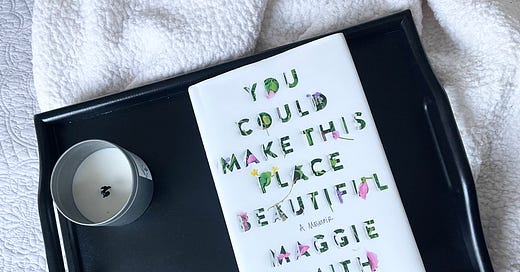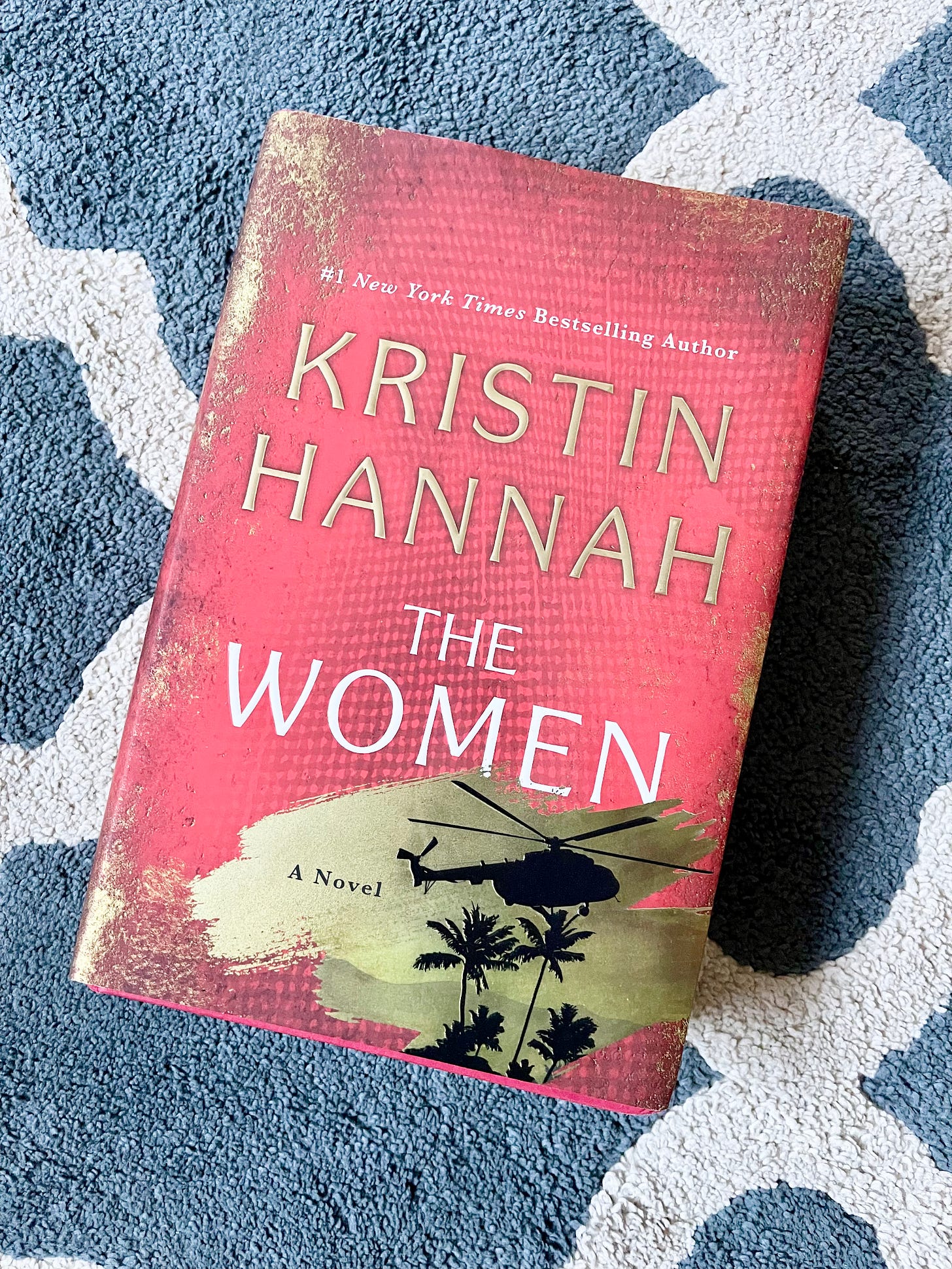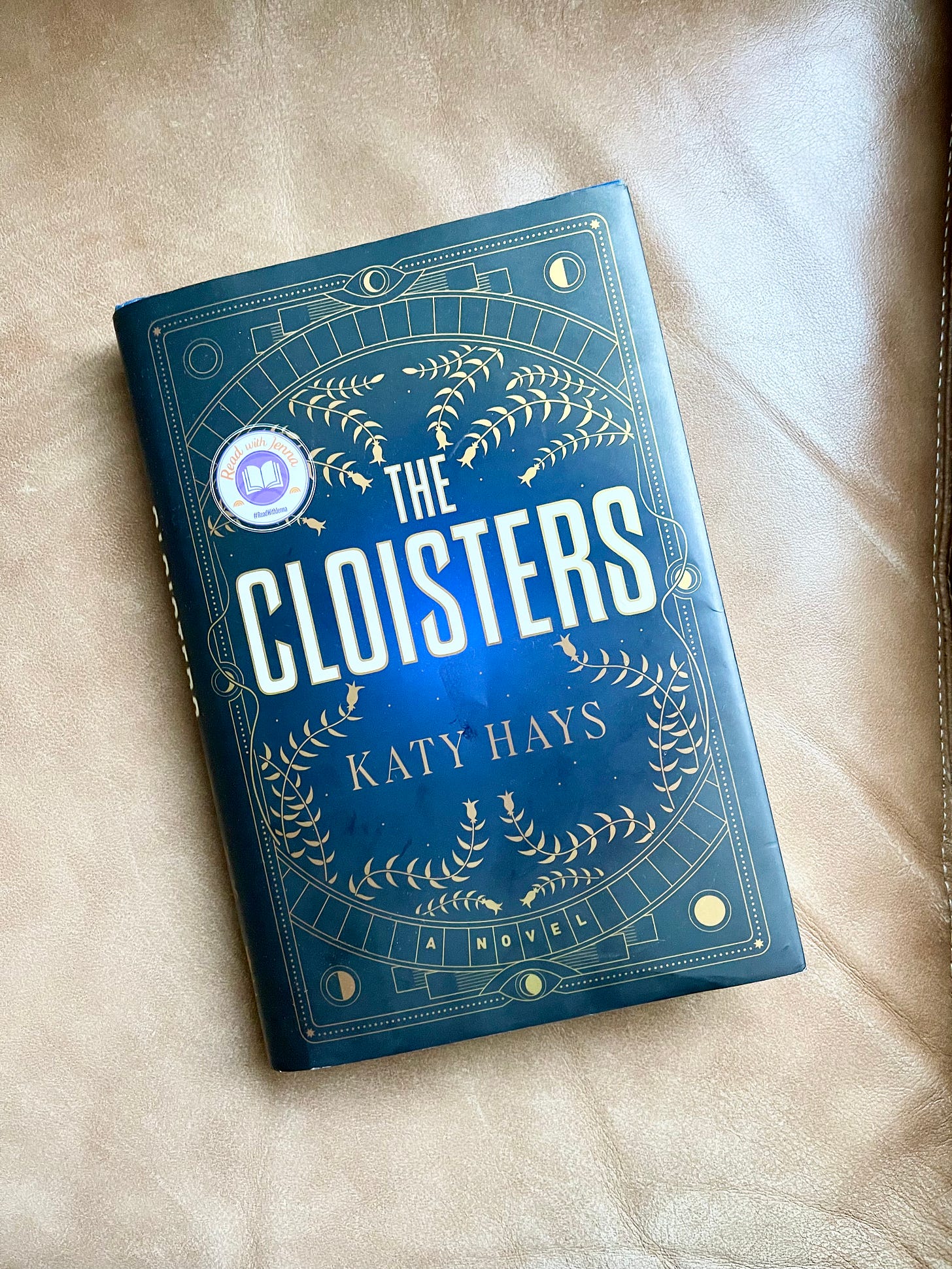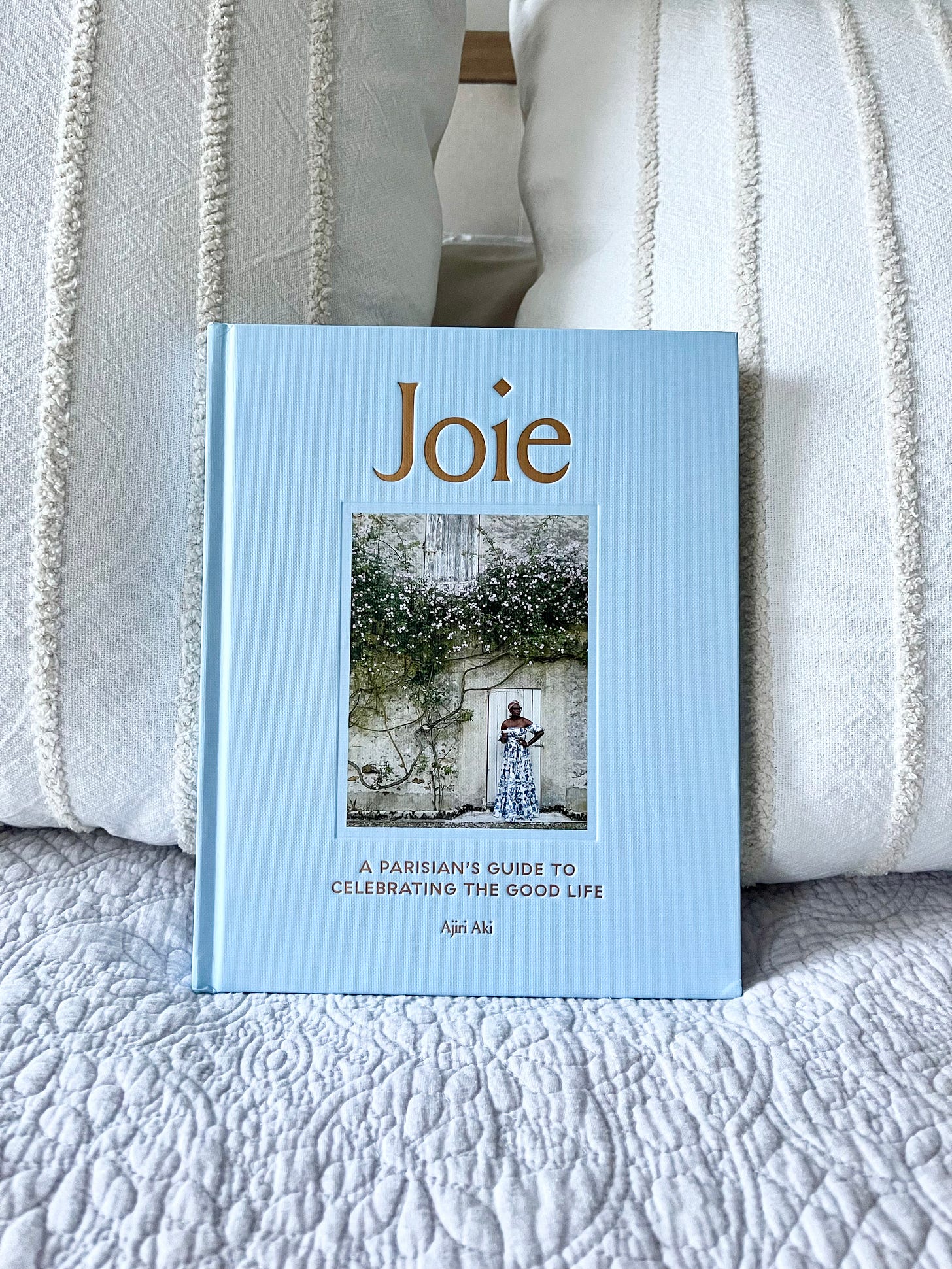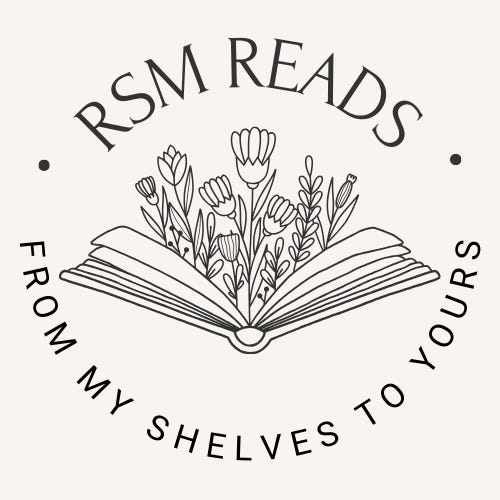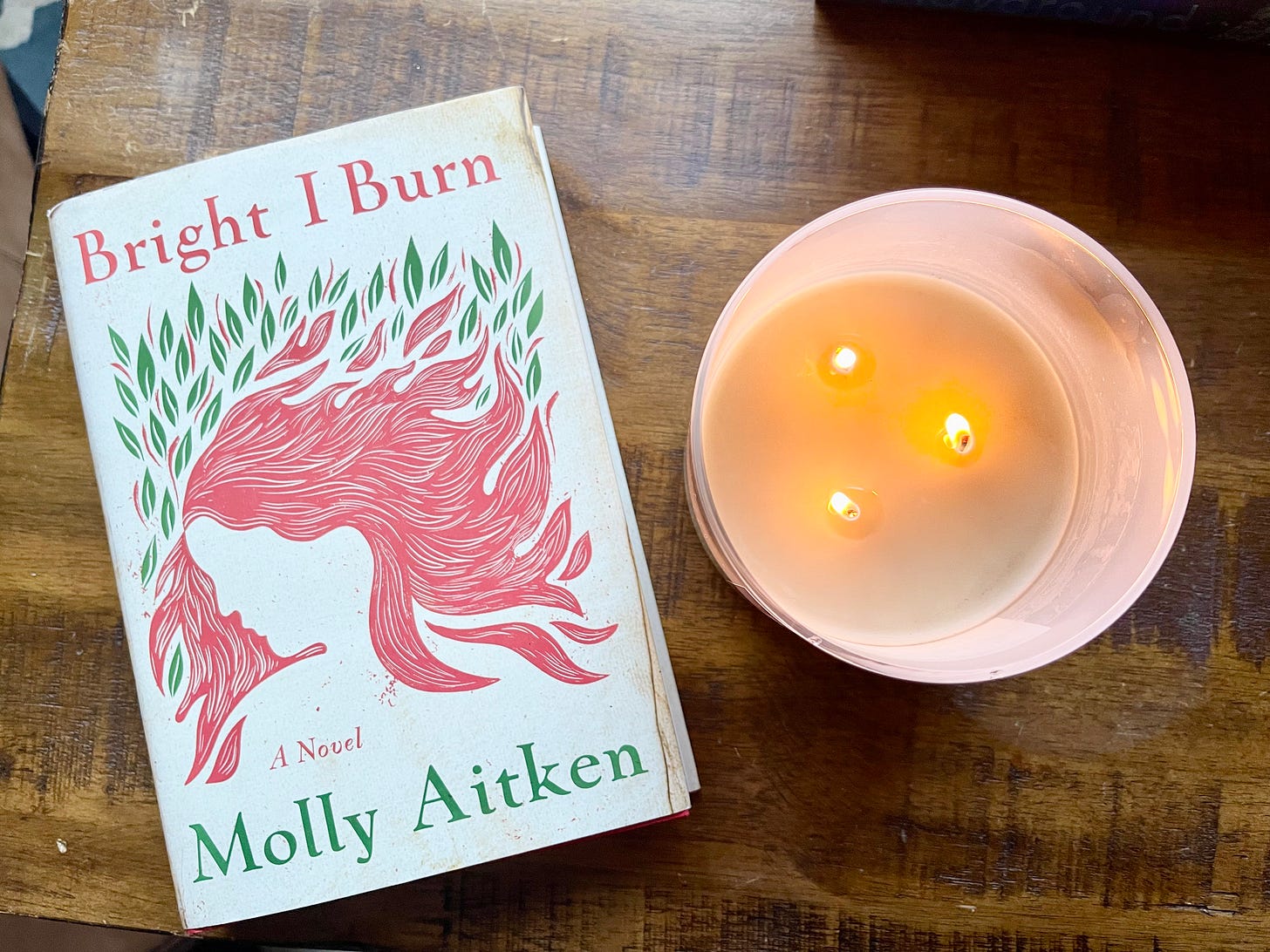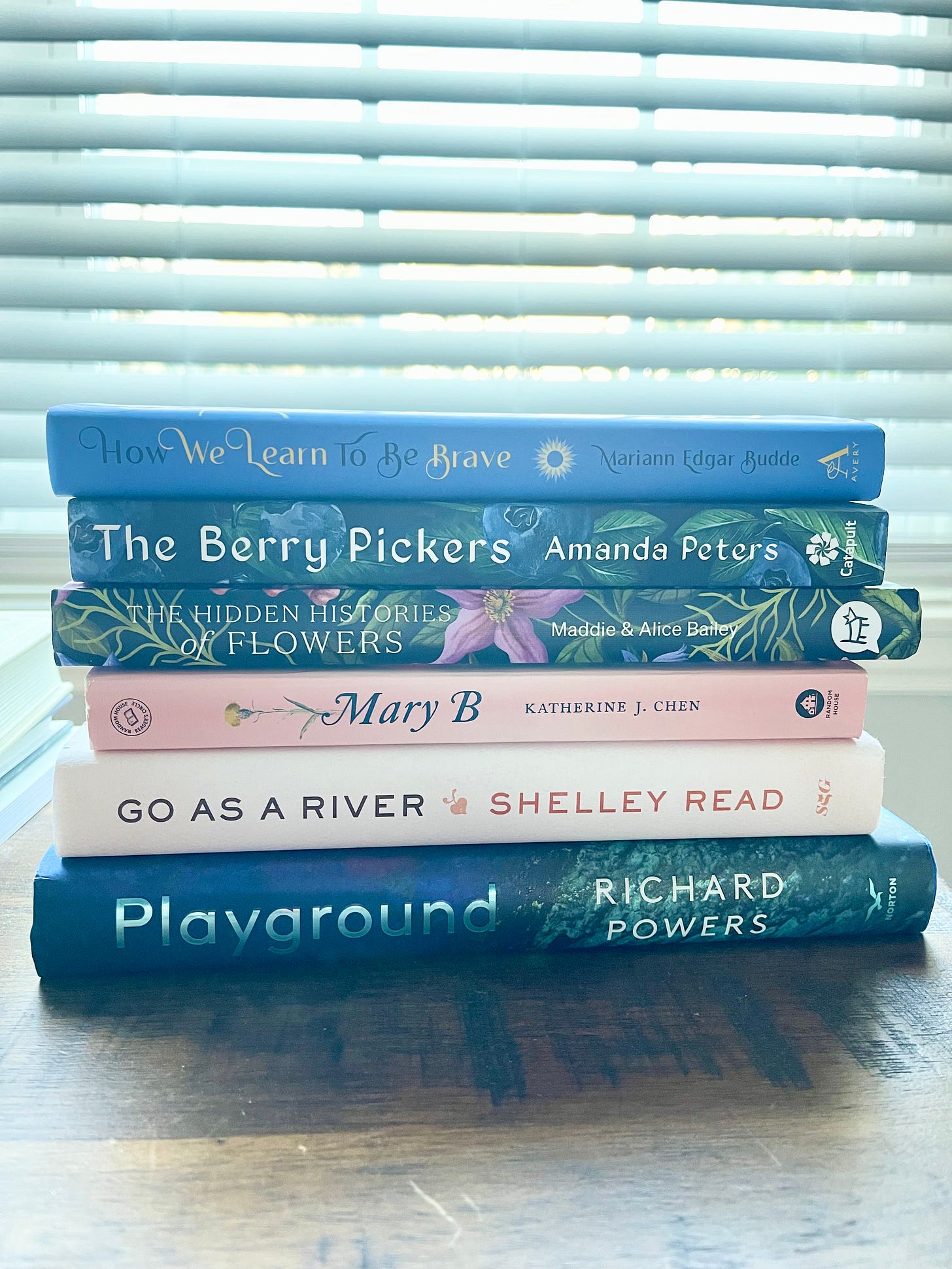February was another whirlwind month, but I did make some time for a few good reads. 2025 is off to maybe the most dissonant start ever, but I’m showing up despite the racket. And one of the ways I love to show up is through this little Substack community. Thank you all for being here.
You Could Make This Place Beautiful by Maggie Smith
This may be one of the most beautiful and heart-wrenching books I’ve ever read. And so timely.
This woman can write, and she showed up on the page to tell a story of the end of her marriage, what she calls “not a tell-all, but a tell mine.” I’m going to post one of my absolute favorite vignettes from the whole memoir here because Maggie’s words are better than mine.
LEMONADE
Every day through my divorce, I posted a note-to-self on social media, each one ending with the same words: Keep moving. When I announced that these quotes would be published as a book, a friend commented on my post:
"You took those lemons and made lemonade, and then you added MF vodka to it."
I think I responded with a laugh-cry emoji. I understood what she meant: The worst had happened, and somehow I'd made something good— something beautiful—from it.
But then I thought about the cost of that lemonade. I thought about my friend Kelly, who, after publishing a memoir about her abusive marriage, endured comments like "at least you got a book out of it." At least you got a book out of it?! As if she should be thankful in some way for her suffering, because it gave her "material"?
I'm trying to tell you the truth, so let me be clear: I didn't want this lemonade. My kids didn't want this lemonade. This lemonade was not worth the lemons. And yet, the lemons were mine. I had to make something from them, so I did. I wrote.
I'll drink to that.
-Maggie Smith
The Women by Kristin Hannah
This month’s book club read was excellent in perspective, but the serendipity made the plot a bit ridiculous. But, it made for a really interesting discussion.
This story follows Frankie, an upper-class Californian who volunteers to be a combat nurse in Vietnam. She has no idea what she is in for, but she quickly befriends two other nurses, and they make a formidable trio, even amidst all the trauma. When Frankie gets home, it is far from a warm welcome. From the spiteful reaction of civilians when she comes home in uniform to the constant refrain of “There weren’t any women in Vietnam,” Frankie has a lot to process and deal with.
I appreciated this book for the excellent portrayal of the horror of combat and the absolute desacration of Vietnam during this crazy war. Hannah clearly did her research, and I loved the focus on women. However, while Frankie shows such solid judgment and skill on the wards, she shows zero of any of that outside of her nursing work. This, I found hard to believe.
Still, critiques aside, this is still one of Hannah’s best novels (a list that includes The Nightingale, The Winter Garden, and The Great Alone—and that is the totality of the list). Hannah is such a prolific writer, and that doesn’t always lead to great work. Though this would make it onto the list of her best.
The Cloisters by Katy Hays
This one was so promising… but it did not deliver. I was hoping for a Gothic thriller, but it never happened.
Ann gets a summer internship at The Met, but at the last minute, she is assigned to The Cloisters, the Met’s museum of the Medieval and Renaissance periods. She finds herself on a team crafting a new exhibit on divination during these periods. Its central artifact is a set of antique tarot cards, which become the singular focus of Ann and her colleagues. As their research continues, a vicious web of self-interest and greed is woven.
This book had so many opportunities to be good and Gothic: the setting of the Cloisters itself, the theme of the exhibit, and the characters themselves. And it never went there. There were no spooks, all of the twists were predictable, and the characters just didn’t make sense. I also wanted more about what it actually takes to put together an exhibit in a place as prestigious as The Met, but I never got any details on that either.
I loved the setting and the sections about NYC itself (having recently been there, it was such fun to really imagine the places), but the plot was uneven. This should’ve been a Gothic thriller, but it was instead a slow fizzle-out.
Joie: A Parisian’s Guide to Celebrating the Good Life by Ajiri Aki
This one was a beautiful read, aesthetically and content-wise. It is a lovely treatise advocating for a more Parisian style of life—anywhere you are. With chapters on slowing down, self-care, finding beauty, and gathering together, this book was a true joie itself. As I am predisposed to love anything about this city (be it Emily in Paris or the food), this was a delight. And the photography was glorious.
Bright I Burn by Molly Aitken
Wow, this one was not what I expected. When I listened to an interview with the author on a podcast, I thought this was going to go some kind of way, but it took a totally different tack. I ended up really getting into the narrative choices, though it took a little bit.
This novel weaves the compelling story of the first recorded woman to be tried for witchcraft.
Married four times, Alice is a woman to be reckoned with. Though she runs the most successful inn and usurer business in medieval Ireland, she struggles to gain the town of Kilkenny’s approval because a powerful woman is to be most feared.
…It doesn’t help matters that each of her previous husbands met with death. Rumors fly in the streets of Kilkenny, and an acrimonious bishop comes into town, asking questions of the team of bitter stepchildren.
The story feels pretty open and shut, but the beauty was in the telling. Aitken feels as experimental in form as Faulkner at times, most of the writing is told in first-person from Alice’s perspective, but other vignettes include overheard conversations in the market or narrated by the coins in the usurers’ pocket. This took some time to get into, but I loved it in time.
Now, to preview some March reads:
I am really excited about this TBR pile. I have a whole range.
A book on faith and bravery by Mariann Edgar Budde, Bishop of Washington (yes, *that* Episcopal bishop)
A mystery that involves a family of migrant workers from the Indigenous Mi’kmaq tribe, who travel annually from Nova Scotia down into Maine to pick blueberries
Something that looks like it’ll be a fascinating nonfiction chronicle on flower lore
The story of the least-liked—or underrated, I’m not sure yet—of the Bennet girls (yep, those Bennets)
A historical novel set among the peach farms of Palisade, Colorado
Richard Powers’ latest (The Overstory is on my short list of best books of all time)
Have you read any of these? Let me know in the comments!
That’s all there is for February. Thank you for joining me here for another month, dear readers! See you next month for the best of March.
From my shelves to yours,
-RSM


